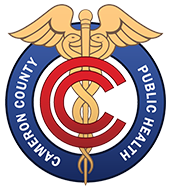HEALTH ALERT
Cameron County Public Health, the Texas Department of State Health Services (DSHS), and the Centers for Disease Control and Prevention (CDC) are investigating an outbreak of fungal meningitis among patients hospitalized in Texas after undergoing cosmetic procedures involving epidural anesthesia in Matamoros, Mexico. This is an evolving situation and public health authorities are actively working to determine the source causing the outbreak and the routes of exposure.
DSHS is issuing this Health Alert to ask Texas healthcare providers to consider fungal meningitis in the differential diagnosis for individuals who:
- Traveled to Matamoros, Mexico, in 2023 to undergo a medical or surgical procedure involving epidural anesthesia, and who have developed headaches and any of the following symptoms consistent with fungal meningitis:
– Fever ≥ 101°F (38.3°C)
– Stiff neck
– Nausea/vomiting
– Photophobia (sensitivity to light)
– Confusion, disorientation, or another form of altered mental status
These individuals should promptly seek evaluation by a healthcare provider or visit the nearest emergency room.






